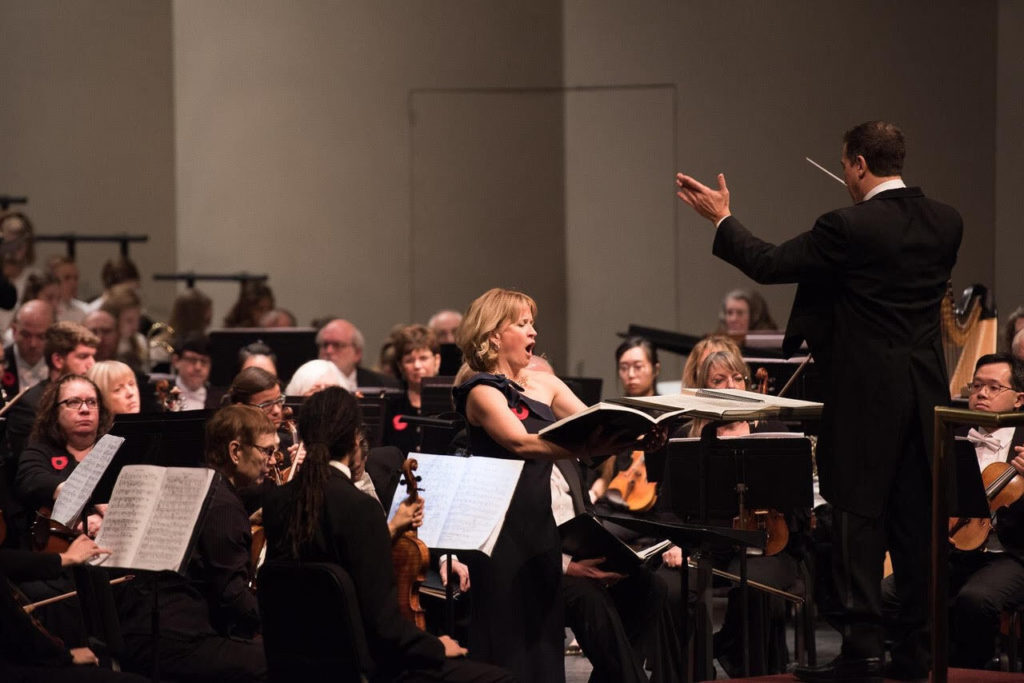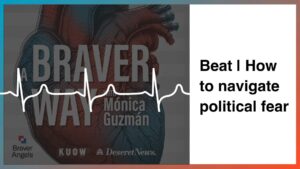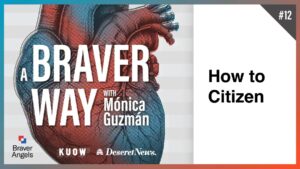Courtenay Budd sees herself as a connector. Finding commonality with family and friends “drives me more than anything,” she said.
But on a cold Thanksgiving night in Poughkeepsie, New York, a comment about the weather devolved into an argument about the events of January 6, 2021. Suddenly, Courtenay found herself opposed to the opinion of someone she loves dearly—her father.
As Courtenay cooked in the kitchen—preparing the holiday meal—her mother gave thanks for modern technology keeping them warm. Courtenay wasn’t as appreciative of the present moment. She told her parents that despite the advances, Americans are losing touch with “community and a sense of purpose.” Her father said he was more concerned with “losing our freedoms.”
The conversation quickly wound its way to what happened on Jan. 6, 2021. Courtenay was shaken by the violence she saw at the U.S. Capitol, worried it was a precursor to civil war. But her father didn’t consider it an insurrection, as she did.
That conversation—and her reaction to it—took Courtenay by surprise.
She appreciates listening to other people’s opinions, a skill she’s been honing since her friend, Cameron Swallow, got her involved in Braver Angels in 2019. She’s also proud of how her father taught her to stand up for her beliefs, and to celebrate freedom of speech, as he did when—as a young Republican—he was kicked out of the University of Georgia for inviting a communist to speak.
But during the conversation, Courtenay got angry. “I thought I would’ve done a better job keeping my temper in check, but I blew it,” she said. “It was awful.”
As politics becomes increasingly central to our lives, many of us are discovering our political identity—whether it’s Red, Blue, or somewhere in between—and how it aligns, or clashes, with the perspectives of those we love. “Suddenly, you have to take a stand and pick a side,” Courtenay said. “And if you don’t, it’s a betrayal.”
Like many Americans, Courtenay is working through where she lands on the political spectrum. “It’s a question of: Who am I? Who do I say I am to the world? And how does the world see me?” she said.
As someone who appreciates conservatives’ protection of individual freedom and liberals’ prioritization of community, Courtenay doesn’t see herself as either a Red or a Blue. Instead, she calls herself a “true Purple,” an identity that feels isolating—but also, she said, like an opportunity.
After taking a break to cool off, Courtenay found her father in another room. “I ended up telling him I love him so much—sometimes I can’t believe how much I love him—and I want to discuss the issue with him further down the line,” she said.
She wanted them to be able to talk to him about anything, but her father said they should avoid politics altogether. Hearing that, Courtenay felt shut out. She was used to struggling to talk about politics with her predominantly Red family, but didn’t believe that avoiding conversation was the answer.
So instead of shutting down, she chose to be honest. “I told my dad I understood why he doesn’t want to talk about politics, but if we don’t, then I feel like he won’t really know me.”
While they never agreed about whether the events at the Capitol amounted to an insurrection, Courtenay vowed to keep listening. She takes inspiration from a surprising place—music. As a classical singer, Courtenay has an ear for hearing what others don’t. For example, when listening to Bach, she said, she knows how to concentrate on the individual lines of music while also appreciating the piece as a whole.
The same goes for politics. “We need both liberals and conservatives,” Courtenay said. It’s not enough to hear one individual line or one political perspective. Instead, “we need people to work together.”
Courtenay prides herself on being a conductor of sorts, using her nuanced points of view to bring politically diverse people together in a symphony; it’s why she’s so passionate about the work of Braver Angels, which connects her to the perspectives of conservatives and liberals alike.
Addressing political polarization enables us to “work on tangled issues through reasonable discussion rather than demagoguery,” Courtenay said. Still, it’s not easy when the songs of the head and the heart seem to collide and we disagree with those closest to us. “Most of us just want to be loved and accepted.”
Courtenay’s advice for her Purple companions? Welcome the complexity. Stay the course, be true to how you feel, and be willing to accept that your opinions may never be set in stone.
“Own it,” she said “There are a lot of us out there. There are a lot of people who take comfort in the idea that people are willing to question both sides.”
Courtenay Budd is a Braver Angels member in New York. To learn more about her thoughts on bridge building, check out her blog at flushtheblog.com. To suggest more stories I could report from the Braver Angels community, send me a note at gtimmis@braverangels.org.
— Gabriella Timmis, Braver Angels Field Reporter
Photo tag: June Etta Photography




